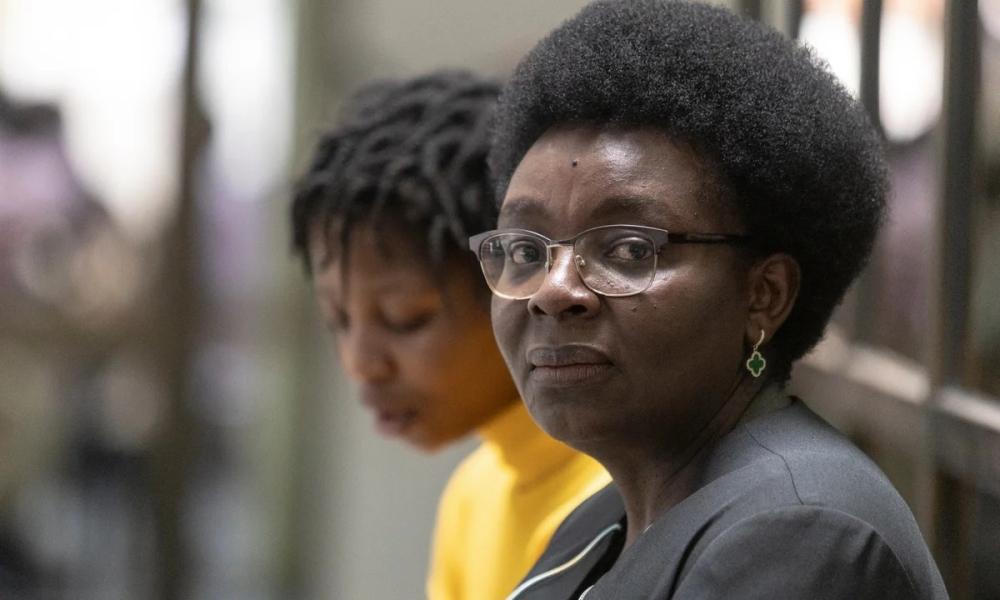Africa-Press – Rwanda. The pre-trial hearing of Victoire Ingabire Umuhoza, a former convict and leader of the unregistered DALFA-Umurinzi party, was postponed to July 15 due to objections from the defence side, on July 8. Among them was the absence of a Kenyan lawyer who Ingabire had hired for her defense.
According to Ingabire and her interim lawyer, Gatera Gashabana, the Kenyan attorney had not yet received authorization to represent her in court, despite existing East African Community (EAC) agreements that, in principle, allow cross-border legal practice among member states.
To gain clarity on what Rwanda Bar Association says about the alleged ban of Ingabire’s Kenyan lawyer, The New Times spoke to Moise Nkundabarashi, the President of the Rwanda Bar Association (RBA).
Nkundabarashi said that although there is an EAC framework that promotes free movement of people and services, including legal services, this framework faces complications.
“Overall, there was an attempt to domesticate these regional instruments into the Kenyan National Advocates Act, but in Kenya, the provisions only lasted for a few months,” he said.
“They were struck down by the Kenyan court of appeal because there was no public consultation, and since then, back in 2014, no legal reform has followed to reinstate the same provision that allows Rwandan and Burundian Advocates to practice in Kenya.”
Rwanda had previously admitted some Kenyan lawyers under these provisions. However, when those lawyers returned to their home country, they were denied reciprocal treatment.
According to him, the Kenya Court of Appeal invalidated key sections of the Advocates Act that would have allowed Rwandan and Burundian lawyers to practice in Kenya. In Case No. 96 of 2014 (Law Society of Kenya vs. Attorney General & Others), the court found Sections 12 and 13(1) (d) of the Act to be unconstitutional.
Since then, no legislative action has been taken in Kenya to rectify the situation and allow Rwandan lawyers equal access. As a result, Rwanda’s Bar Association views Kenya’s stance as lacking reciprocity, one of the main conditions required for foreign lawyers to be allowed to practice or be granted temporary authorization in Rwanda.
The Bar President cited a notable example. On January 12, 2017, a Kenyan national, Javan Kiche Otieno, was admitted to practice law in Rwanda. However, in 2019, his request to join the Law Society of Kenya was denied. The High Court of Kenya upheld this decision in Petition No. 4 of 2020, urging the petitioner and others to pursue legislative change through parliament.
What does this mean for Ingabire’s case?
In light of this legal context, Nkundabarashi said the Kenyan lawyer hired by Ingabire could not be cleared to represent her in Rwanda.
While EAC agreements advocate for cross-border legal practice, the lack of binding domestic legislation, especially on Kenya’s side, limits Rwanda’s ability to unilaterally grant such permissions.
“Until true reciprocity is established and respected among countries, foreign lawyers might continue to face setbacks when trying to practice in Rwanda, and vice versa.”
What does the law say in general for foreign lawyers to defend a client in Rwanda?
According to Nkundabarashi, the 2013 Law Establishing the Bar Association, which establishes the Rwanda Bar Association states [Article 7] that: “Where their national legislation provides for reciprocity and subject to international agreements, advocates from foreign Bar Associations shall be granted the right to practice, provided they observe the regulations governing the profession in Rwanda. The President of the Bar Association shall have the power to grant such authorization.”
Additionally, the law notes that advocates from states that have concluded a regional integration agreement with Rwanda shall be allowed to practice in Rwanda as provided for in such agreements.
RBA’s internal rules and regulations further provide for the temporary authorization of foreign advocates for specific cases.
Article 78 allows lawyers registered with foreign bar associations to practice in Rwanda “only occasionally” and again, with the approval of the President of the Bar Association, after assessment of whether reciprocity exists or not.
For More News And Analysis About Rwanda Follow Africa-Press






